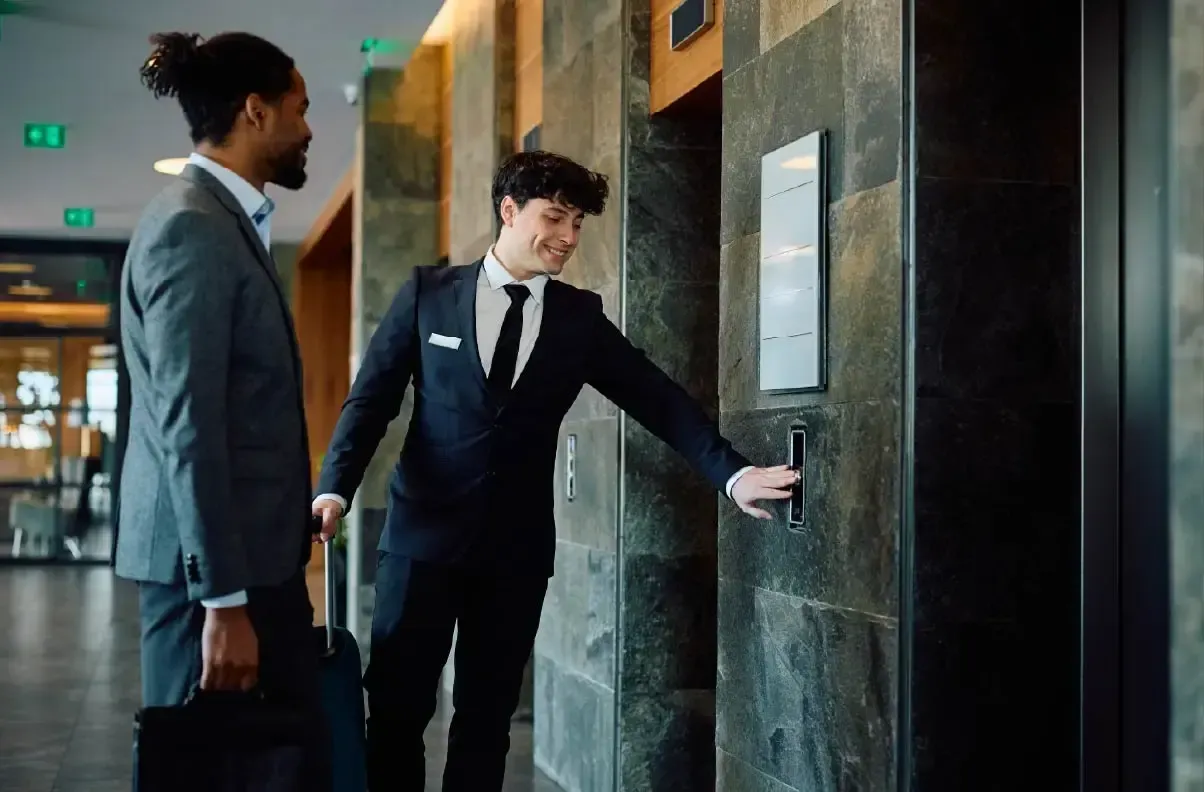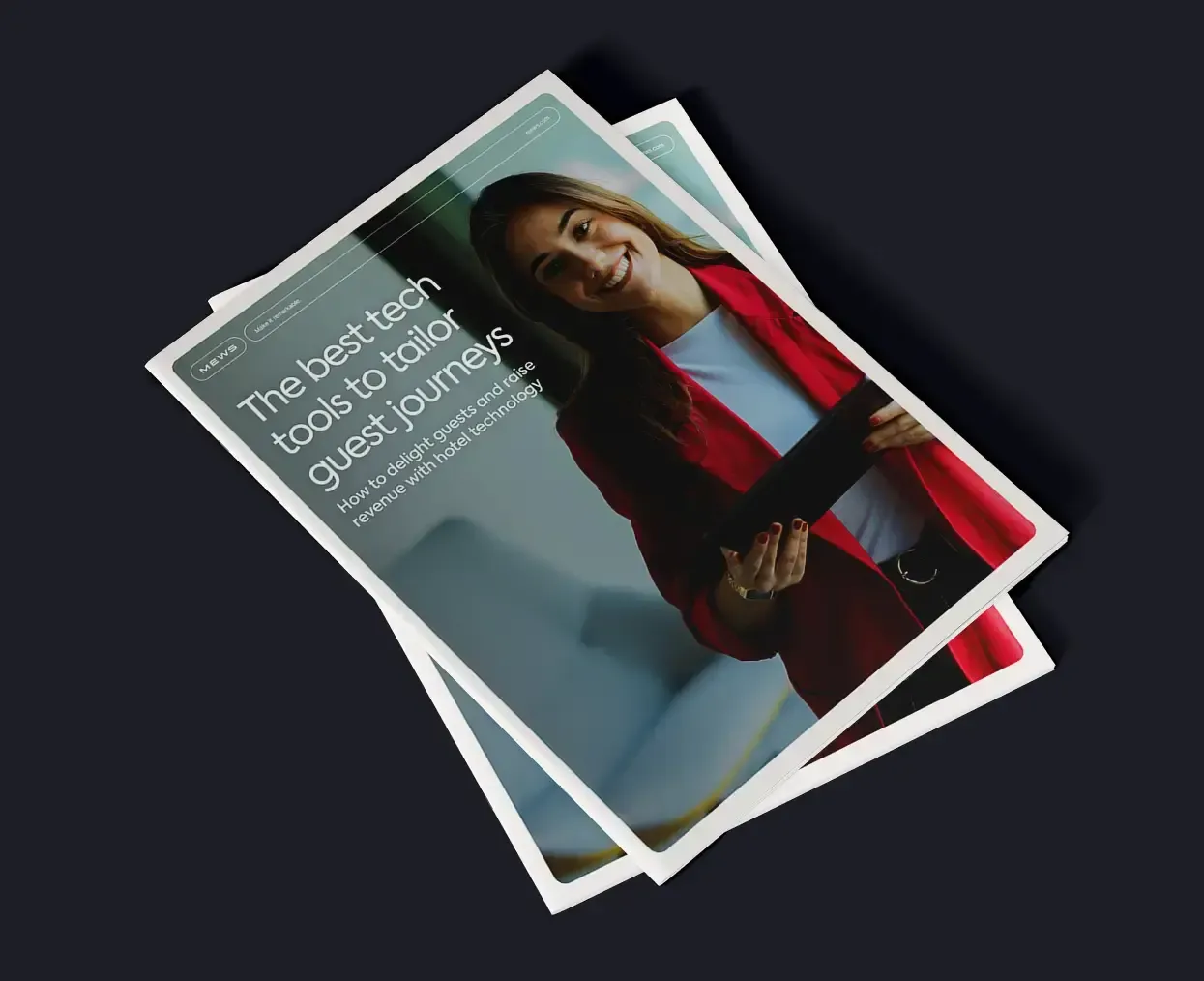We work in an exhausting industry. So much of our time is dedicated to ensuring that our guests have remarkable experiences that we forget to pursue our own happiness. I’ve worked in both sides of industry – on the front lines at reception and behind the scenes in hospitality tech – and in both areas I’ve often felt exhausted and overworked.
So what’s the solution?
Obviously, I don’t have all the answers. It took me years to find the best ways to recharge and find my personal balance. But I do believe that hoteliers and anyone in hospitality have a particular responsibility to look after themselves and their teams, and I wanted to share some of the thoughts and solutions that helped me.
Shared responsibility
Before I get into some of the specifics, I think it’s worth highlighting that managing burnout is a shared responsibility. As an employer, we need to create a safe space so that people can speak up about challenges. We need to enable managers to have those conversations with their team members and help coach them to set the right priorities. We need to have clear strategic priorities and over-communicate those, to make prioritization easier for anyone in the business.
As an employee, it’s important to take personal accountability to ensure you find a healthy balance that keeps you engaged with the mission. You need to recognize the symptoms and ring the bell to ask for help (the metaphorical bell, not the bell on your reception desk). This may feel like a failure, but some of the most successful people at Mews are the ones who know their limits and communicate them well. Suffering in silence never helped anyone.
Five ways to reduce burnout in hotel staff
1. Create a supportive work environment
There’s no question that a supportive work environment does wonders for tackling burnout. At Mews, we have a number of employee resource groups (ERGs) across topics like mental health and neurodiversity. Employers can’t be an expert on every single subject. ERGs are so valuable because they leverage the knowledge and talent of your own team, empowering them to handle potentially sensitive issues with expertise.
We also have an all-company forum where everyone is free to raise questions for the leadership team, directly or anonymously. Openness is one of our core values, and we must show respect to every employee by welcoming their opinion.
2. Empower employees
When you feel trusted and respected, you perform better at your job. You’re also happier and more engaged. In the context of a hotel, staff empowerment comes largely through technology. And yes, you would expect me to say that.
The receptionist is a classic case-in-point. If every time someone checks in, they have to perform a dozen tasks on the computer, print out forms to be signed and handle manual payment – all while trying to keep the guest happy and excited about their stay, fielding any extra questions they might have – then it won’t be long before they feel tired.
A modern receptionist should be more like a tour guide for the hotel and surrounding area. A curator of experiences. They should be getting to know the guest on a more personal level and making them feel truly welcome. They can only do this if you automate all their repetitive tasks. Suddenly, they're much better equipped to perform the most valuable part of their job (the act of hospitality) and won’t feel so rushed.
3. Lead by example
Good behavior filters down. I wouldn’t expect people at Mews to adhere to our company values if I wasn’t following them myself.
This is something that took me a while to improve. When you’re leading a business, you feel as though the stakes are always high. Especially in the world of hospitality, we tend to feel more invested – and this is especially true for the many hotel owners who play an active role in day-to-day operations.
In the past, I didn’t take enough holiday, and that led to burnout. When you’re stretched, you don’t think as quickly or as clearly, and so it can affect the business too. Now, when I take holidays, I’m careful to properly switch off. I trust the Mews team and I know that if something truly urgent comes up, they’ll contact me.
4. Treat your team like guests
It feels like we’ve been talking about hospitality’s staffing shortage forever. One of the biggest reasons for staff turnover is burnout, and one of the best remedies is investing in a proper wellness program.
Do you put the same effort into delighting your own team as you do to delighting guests? Workplace expectations are changing, particularly in the younger generations who often comprise hospitality’s workforce.
Just as you don’t only offer guests a room, you shouldn’t only offer your staff a salary. Extras are important. A couple of things we do at Mews:
- Membership to an online fitness platform
- Therapy sessions and access to Mind Gym
- Flexible benefits platform where you can buy what you like
5. Keep learning
There’s no magic solution that will immediately stop hospitality burnout. It may even be that the first things you try don’t work as well as you expected. That’s why it’s so important to continually monitor progress and feedback from your team.
We run a monthly employee engagement survey to track key happiness metrics and consult everyone in the company about what we’re doing well and what we could do better. A survey or regular meetings about staff wellness also indicate that you’re serious about your commitment. Sometimes even the simple act of feeling heard makes a big difference.
And at the end of a meeting, ask participants to rate the meeting. Not just wellness meetings, but any recurring meeting in your calendar. This ensures you either improve the format or cancel the meeting if no one gets value from it. Don’t tolerate meetings that are a waste of your time.
Burnout is a vicious cycle. It’s easier to continually care for yourself and your teams than it is to try and recover from frequent bouts of exhaustion. I was really happy to see our American team running a series of wellness events for hoteliers, where they could turn up and be pampered for a couple of hours with cocktails and massages.
I’m not saying cocktails every day is the answer (although maybe it is), but we’d all do well to remind ourselves that those providing hospitality also deserve some five-star treatment.
Written by

Matthijs Welle
CEO, MewsAfter years on the front lines of hospitality, Matt joined the Mews adventure in 2012. Since then he's been our fearless CEO, leading the company and the industry forward.










